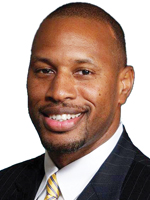Advocacy is not what it should be
It's a courtroom, not a World Wrestling match
Television and the movie industry have created this fiction that the legal profession is like the World Wrestling Federation, except the people wear business suits. The entertainment value from the fights, the sandbagging, surprise witnesses and exhibits has no place in the real world, and certainly, not in a real courtroom. The idea that “I don’t want to educate the other side about my case” is actually the worst perspective an attorney should have. As a judge, I believe it is my duty to be an advocate for the litigation process and there should be a particular approach to that process. Every litigant who appears before me will get the following lessons about advocacy:
“There are two maxims everyone should follow in order to be successful in Dept. 28. Maxim number 1: Litigation is not poker. Show your cards, right away, face up. The litigation process functions well when there is a transparent and ongoing dialogue about the facts of the case, and the law applied to those facts. When the parties really understand what the case is about by understanding the other side’s case, the case is more likely, and more rapidly going to resolve. The facts cannot be changed. The party who is holding a full house will beat the party with only two pairs every time. Therefore, the party with the two pairs needs to be realistic and try to reach a compromise.
Maxim number 2: Try the case you have, and not the case you wished you had. Many of the nonsensical discovery disputes originate from approaching the case with the fantastic idea that the case would be better if certain things could be established. However, by not focusing on the actual case, you undermine your genuine presentation and you lose credibility with the court and the jury. The jury can readily recognize when a litigant is insincere about her case. Trying your actual case will always present better than something you hope to develop.”
Finally, litigants need to engage in more East-West conversations. What do I mean by that statement? It is about good old-fashioned communication. When parties appear in front of me and they complain about what the other side is doing, or not doing, that conversation is North-South. In addressing the complaint, I will often ask the other side, “Were you aware of this problem?” and many more times than not, the other side had no idea. When the parties have the East-West conversation, they are speaking to one another. The meet and confer requirement does not mean that you exchange five page recitations of the CCP or Evidence Code without actually reading those long-winded letters. The best and most successful advocates will pick up the phone and talk to the other side about what needs to be resolved. When the East-West conversation takes place, everyone benefits.
Rupert A. Byrdsong

The Honorable Rupert A. Byrdsong was appointed to the Los Angeles Superior Court on June 18, 2014 by Governor Jerry Brown. He presently sits in Dept. 28 in the Stanley Mosk Courthouse in downtown Los Angeles wherein he handles an unlimited jurisdiction individual court calendar with an inventory of over 500 cases. Prior to coming to Mosk, Judge Byrdsong was the first African-American in the Complex Civil Department wherein he handled and coordinated all of the asbestos cases in Los Angeles County. Judge Byrdsong volunteers his time mentoring young lawyers and speaks to students in high schools, colleges, and law schools throughout Los Angeles. He also volunteers his time to interview prospective students for Vanderbilt School of Law. Judge Byrdsong is active with the John M. Langston Bar Association (lifetime member and past president 2006), the California Association of Black Lawyers (CABL)(lifetime member), LACBA’s Labor and Employment Executive and Saturday Seminar Committees, and a Founding Member of the Association of African American California Judicial Officers (AAACJO). He served on the Executive Committee of the Labor and Employment Section for the State Bar of California from 2003-2007.
Copyright ©
2025
by the author.
For reprint permission, contact the publisher: Advocate Magazine
